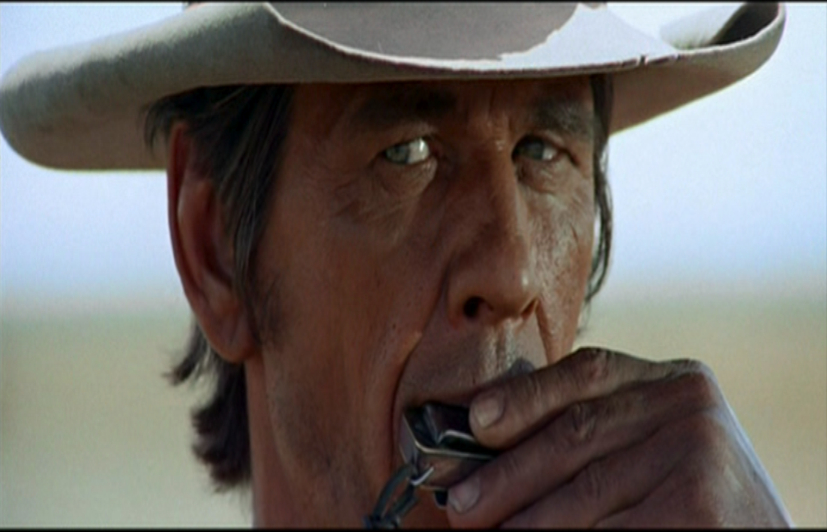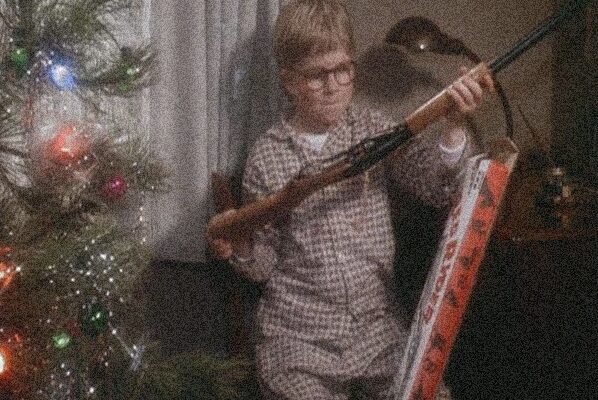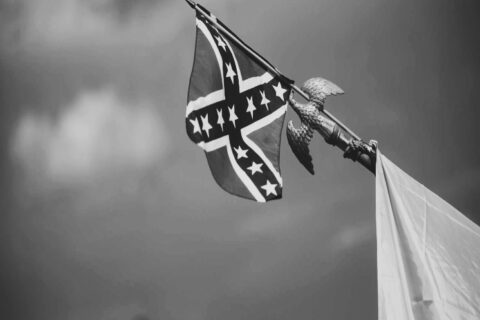As with many other people who grew up in the 1980s and 1990s, I’m a huge fan of Bob Clark’s 1983 film A Christmas Story. Sure, it’s about a Yankee family, but it’s also a wholesome film. I watch it every year (multiple times thanks to TBS) and find that it has just enough of an edge to avoid being sappy, but also avoids full blown cynicism. The film has become a modern Christmas classic, and for good reason – it does connect to a simpler, more traditional America in the days before our entry into World War II. I think there is an explanation as to why this film has been embraced by Gen Xers and older Millennials: they were a generation raised in the aftermath of the 1960s social revolution, and the portrayal of Christmas in the film connected with them. The movie even has three sequels – It Runs in the Family (1994) set in the summer after the events in the original film, A Christmas Story 2 (2012) is set in 1946 and is supposedly terrible, and most recently A Christmas Story Christmas (2022) which takes place in the 1970s. Although I have not seen it, I am cautiously optimistic.
Part of the charm of the original film is how simple it is. Peter Billingsley plays Ralphie Parker, a young Midwestern boy who wants only one thing for Christmas, a BB gun. More precisely, “A Red Ryder BB gun with a compass in the stock, and this thing which tells time.” Unfortunately for him, the adults around him, namely his mother, don’t want him to have it (“You’ll shoot your eye out!”), despite his repeated attempts to get the gift. He goes into Christmas morning convinced he won’t get it, but as it turns out, his father comes through. As the film ends, a now-adult Ralphie (who serves as the film’s narrator) reminisces about how this was his favorite gift he ever received for Christmas.
Beyond the quality of the film itself, something that strikes me upon watching it are the insights it offers as to why the Left has never been able to impose gun control on the United States (like they did on the rest of the West). Of course, part of this is in the cultural DNA of the United States. The United States is an Anglo-derived society, and in the early modern era Anglo-Celtic societies had a far greater tolerance for private gun ownership than the continental countries did. This was further enforced by the settler nature of the Colonial and early Republic periods. Gun ownership was not a luxury, but a necessary tool for survival. However, this alone does not explain why the Left has had far less success in the U.S. with imposing gun control than they have had in the West. After all, the United Kingdom has very strict gun control and, even more tellingly, fellow Anglo-Celtic settler societies, like Australia and Canada, have also seen an increase in draconian gun control measures in the past several decades.
A Christmas Story offers a valuable understanding as to why this is – the Left has largely failed imposing gun control on the United States because there were (and still are, to some extent) so many Christmas memories like Ralphie Parker’s. Up until fairly recently, giving young boys guns (even if just a BB gun) was commonplace. It was a long-standing tradition in Dixie to give a young boy his very first .22 rifle and a copy of Douglas Southall Freeman’s Lee’s Lieutenants. While the latter certainly wasn’t a common gift for boys in the Midwest, the former was.
The tradition is important, because it taught generations that guns had their place in society, and at the very least, assured young boys that they had fond childhood memories related to firearms. Ralphie is a great example of this phenomenon. There is no indication that there are any other guns in the house, and judging from his mother’s reaction, that appears to be unlikely. His father, though, delivers in the end, and comes through because he had a BB gun when he was Ralphie’s age and wanted his son to share the same experiences he had.
The BB gun is also important in terms of Ralphie’s development because of the year it takes place. Though the year is never stated, the general aesthetic of the film is very clearly from the late 1930s and early 1940s. There are clues in the film that narrows it down further. Two separate times in the film there are characters dressed like they’re from The Wizard of Oz, which came out in 1939, but there is also no mention of American involvement in World War II. Thus, the film must take place in either 1939 or 1940. Of these two, I think 1940 is more likely, as the decoder pin Ralphie uses in the film is labeled “1940.” If the film really does take place in 1940, that’s important because this is the last time Ralphie had a normal Christmas until he was a teenager due to World War II sanctions. Remember, for as bad as the Great Depression was, as long as one had a stable job, one could still afford food, clothing, housing, toys, etc. But the years during the war were different, there really was a shortage that impacted even middle-class families like the Parkers. So not only does the BB gun matter because it was something Ralphie wanted, but also because he would be a teenager by the time he had another normal Christmas. Keep in mind, too, that this was the last Christmas where he got to see several older boys from his neighborhood alive. All this would make it unlikely the Ralphie would support European-style gun control measures.
Sadly, over the past several decades, Christmases like Ralphie’s have become far less common. So, what happened? Part of this is due to the feminization of society. A major plot point is that his mother doesn’t want him to have the BB gun, it is only through the intervention of his father that he gets it. This would have been uncontroversial in the patriarchal society of the 1940s, but greatly less common in the feminized society of today. The sitcom trope of the wise mother and the idiot, manchild father has been standard since the 1990s. Had the film been set since the 1990s, it would have almost certainly been about how the enlightened mother didn’t want Ralphie to own a gun and how she was right.
But part of this is because far too many gun owners have taken on a “boys club” mentality, and have not worked hard enough to bring the next generation on board. In some cases, I have even seen them try to exclude younger folks. This is a horrible mistake that could spell the end of the relative success the Right has had with curbing gun control in the United States. The young must be reached and mentored, or they have no good reason to oppose gun control, as has been observed in the rest of the West. To look at a closely related issue, hunting in the United States was something everyone could do and, in some cases, had to do. Millions of normal people had important reasons to oppose sever regulations on hunting. But in contrast with Europe, especially the continent, hunting was only for the nobility, and they wanted to make sure the peasants could not participate in their sport. As a result, millions did not care about hunting bans – it was part of a world from which they had been excluded.
Part of the appeal of A Christmas Story is that it portrays a simpler, more innocent country. It was also a more masculine country, one where gun control was very hard to pull off. As the nation has moved farther away from that depiction of Old America, the conditions that lead to gun control being such a hard sell have disappeared, thus making future gun control efforts easier to accomplish. Unless there are more Christmases like the one Ralphie Parker had in 1940, gun owners could be looking at a very different America and very soon wondering what happened.
The answer lies in what kinds of gifts young boys got decades earlier.







Ah, man, what a great article! First of all, my family, too, shares your family’s love of A Christmas Story; I have it on dvd, and we watch it every year (numerous times) beginning about now and leading up to Christmas Day. Second, for several years running up to my tenth birthday, my father got me a new BB gun for Christmas. When I was ten, he upgraded to a .22 long rifle; after that, it was a .20ga shotgun, and eventually a Winchester 30/30 rifle (a “brush gun”) for deer hunting when I was 14. When I was that age, btw, our school – our public school, no less – authorized, nay, encouraged, all boys to take a week off from school to be in “deer camp” for the week (that was when rifle season was only a week long, it is two weeks long now). In hindsight, it was almost like in basic training on Sundays – you know, when you had the option of going to church, or of working in the mess hall or whatever. Of course, religious or not, we all chose church attendance over mess hall attendance. Third, I’ve carried my dad’s tradition on with all of my kids, male and female alike: they’ve all owned numerous and sundry BB guns that they got for Christmas from five years-old and up, and six of the eight (minus two of our girls who care nothing for guns whatsoever) have gotten all sorts of guns for Christmas since their BB gun days. And the two of them who have families of their own are “paying the tradition forward” as we speak. In other words, we’re doing our part; have been doing our part for a long time now.
I wonder if you know that a town in my state – Chickasha, OK – lays claim to being the hometown of the originator of the idea for the “leg lamp” in A Christmas Story? They even have a monument of sorts in their central park or something claiming this distinction. I don’t know how true or false it is, and I don’t really care to be honest. I’ve just thought it interesting that is the case. Plus, the town’s mascot for its sports teams is “the chics.” I don’t know if that refers to adolescent chickens, or to that sexy, oversized leg lamp they’re so proud of. LOL
Oh fuuuudge. Five-year-olds in your family got me beat. I didn’t get my first bb gun for Christmas until I was 8. My brother, who was 10 at the time, got a bb pistol powered by CO2 cartridges. Together we went down to my grandfather’s basement and shot the &%$# out of his Kiwi shoe polish cans off the ping pong table. (My uncle put us up to it) and my mother’s father took it with a scowl and stoical silence. We’d have never even thought of doing such a thing against my Dad’s no-nonsense Prussian father.
‘There’s nothing but lies, cowardice, and obedience in owning a gun and complying with gun laws. ‘ Don’t misread or misunderstand what Allen Stevo is saying here. He is saying SCREW THE GUN CONTROL LAWS. WE HAVE THE GOD-GIVEN RIGHT TO OWN ANY KIND, AND ALL THE GUNS WE DESIRE. WE HAVE THE RIGHT TO OWN ANY TYPE OF GUN THE GOVERNMENT THUGS HAVE. END OF DISCUSSION. NOW, BUREAUCRAT, GET THE HELL OFF MY PROPERTY.
see this essay.
https://www.lewrockwell.com/2022/12/allan-stevo/how-you-arent-like-the-rest-why-that-shouldnt-surprise-you/
Regarding the new sequel — it does rely a lot on nostalgia for the first film and it is more PC in its choice of presents. There’s also a rather wholesome plot point about Ralphie trying to live up to his old man’s legacy. It’s probably not as good as the original but I am interested in your review after you see it.
A Christmas Story Christmas is very well done, most of the original characters (actors) return. It’s not woke, and I would recommend it.